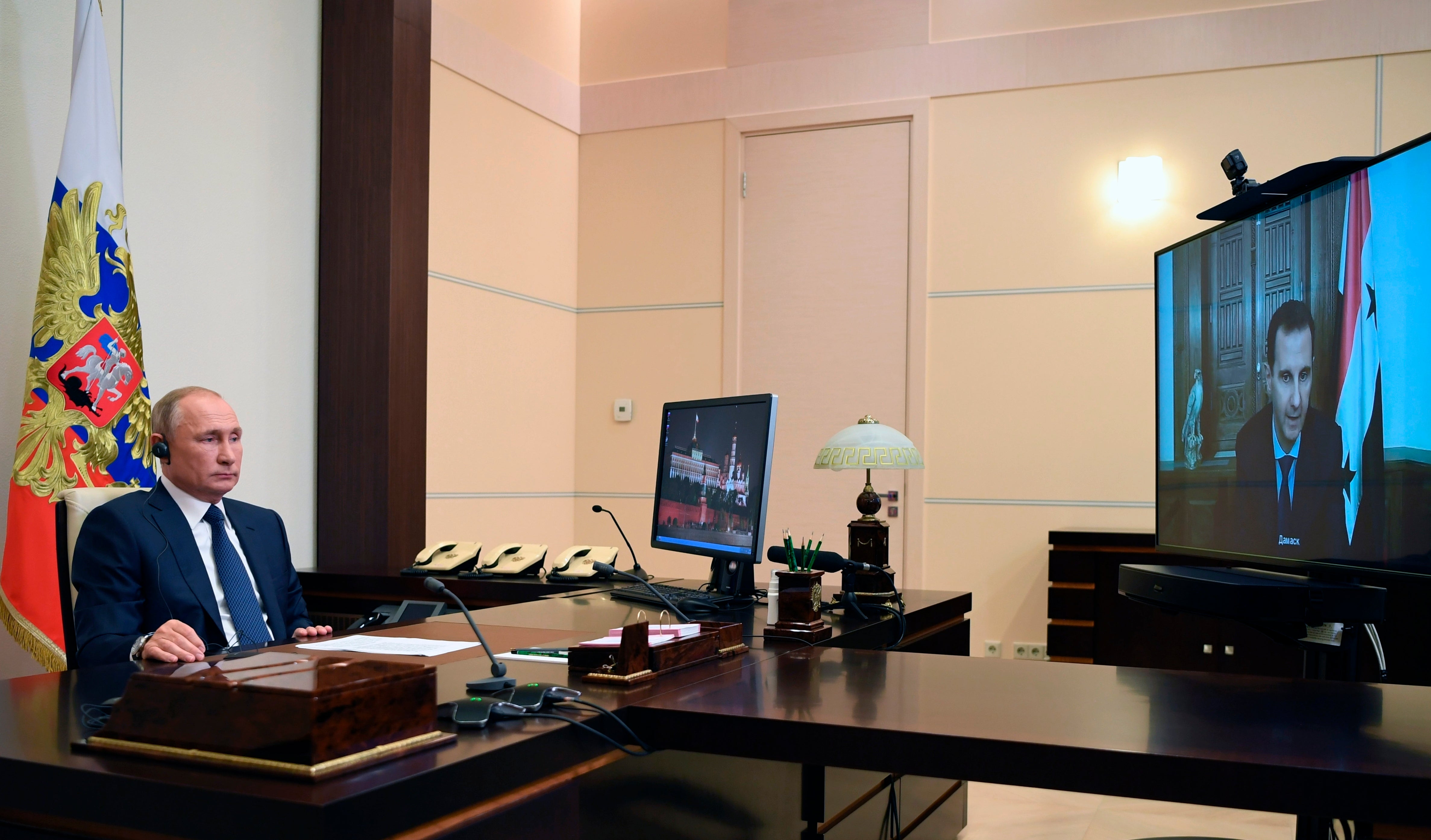Time for Syrian refugees to return home as ‘international terrorism has been almost wiped out’, says Putin
Russian President Vladimir Putin says millions of Syrian refugees who fled their country's civil war should start returning home to help rebuild Syria now that large parts of the Arab nation enjoy relative peace.

Your support helps us to tell the story
From reproductive rights to climate change to Big Tech, The Independent is on the ground when the story is developing. Whether it's investigating the financials of Elon Musk's pro-Trump PAC or producing our latest documentary, 'The A Word', which shines a light on the American women fighting for reproductive rights, we know how important it is to parse out the facts from the messaging.
At such a critical moment in US history, we need reporters on the ground. Your donation allows us to keep sending journalists to speak to both sides of the story.
The Independent is trusted by Americans across the entire political spectrum. And unlike many other quality news outlets, we choose not to lock Americans out of our reporting and analysis with paywalls. We believe quality journalism should be available to everyone, paid for by those who can afford it.
Your support makes all the difference.Millions of Syrian refugees who fled their countrys civil war should start returning home to help rebuild Syria now that large parts of the Arab nation enjoy relative peace, Russian President Vladimir Putin said Monday.
Putin’s comments came in a video call with Syrian President Bashar Assad ahead of a two-day international conference on refugees in Damascus scheduled to begin Wednesday. The controversial gathering, organized by Russia, has been criticized by U.N. and U.S. officials.
Syria state media carried the Putin-Assad video call with Arabic voiceover of Putin's comments that he made in Russian.
Syria’s nine-year conflict has killed about half a million people, wounded more than a million and forced about 5.6 million to flee abroad as refugees, mostly to neighboring countries. Another 6 million of Syria’s pre-war population of 23 million are internally displaced.
Russia joined Syria’s war in September 2015, tipping the balance of power in the favor of Assad, whose troops have since retaken much of the country. Syrian insurgents still control the northwestern province of Idlib, while U.S.-backed Kurdish-led fighters control parts of the country’s east.
A U.N-facilitated political process has been stuck for months, and many Western countries blame Damascus for blocking progress. Many Syrians and Western countries see current conditions in Syria as not ripe for the mass return of refugees.
In the video call, Putin said that “international terrorism has been almost wiped out and return to civilian life should begin gradually.” Russia and the Syrian government refer to all insurgent groups as “terrorists.”
Putin also told Assad that a deal for Syria’s conflict should include the return of refugees and displaced in accordance with the United Nations Security Council resolution 2254. He added that the millions of refugees “are people of working age and should work on rebuilding their country.”
The U.N. Security Council Resolution 2254 adopted in December 2015 sets a timetable for talks and a cease-fire that was never met.
Two days ahead of the Damascus conference, it remains unclear whether some of the countries that host the largest numbers Syrian refugees, such as Turkey, would attend. Syria accuses Turkey, which backs the armed opposition to Assad, of illegally deploying troops inside Syrian territory that is controlled by the rebels.
Lebanon, which hosts the highest per capita number of Syrian refugees in the world, said it would send a small delegation.
Richard Mills, U.S. deputy ambassador to the U.N., said last month that the conference was not organized in coordination with the United Nations or the countries hosting the largest numbers of refugees, urging nations to boycott it.
“This conference will only be the beginning to solve this humanitarian problem,” Assad said in the video call, adding that a main obstacle for the return of refugees are Western sanctions, which he described as “illegitimate and unjust.”

